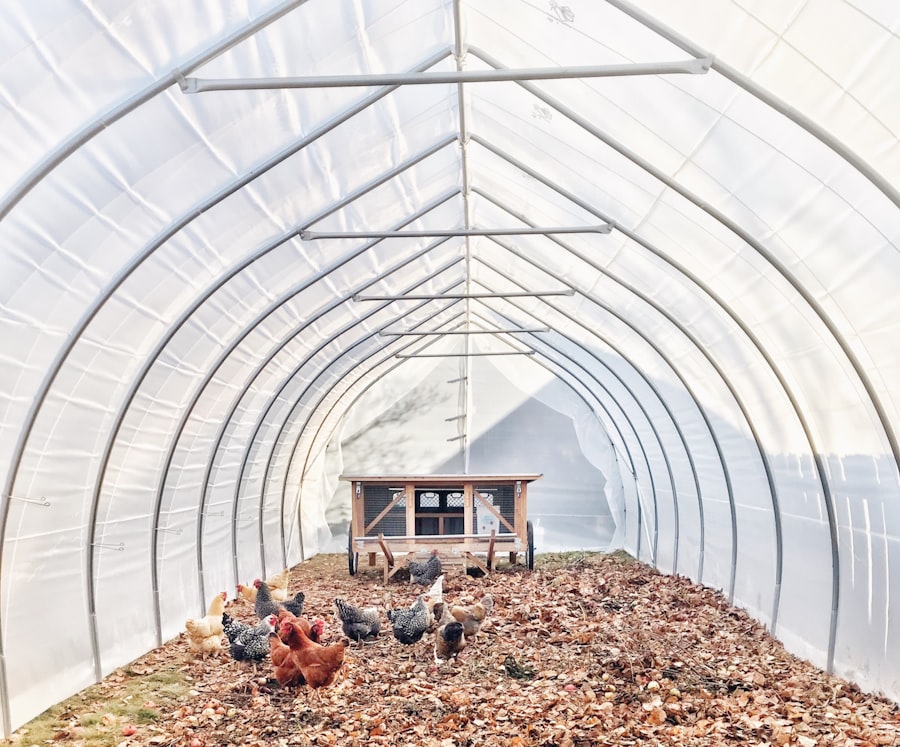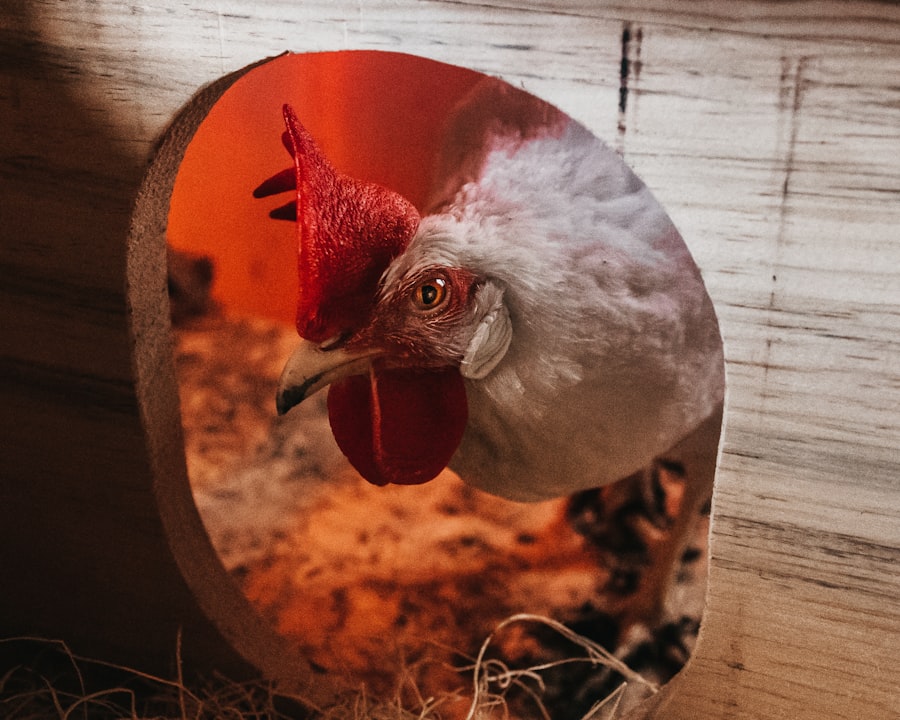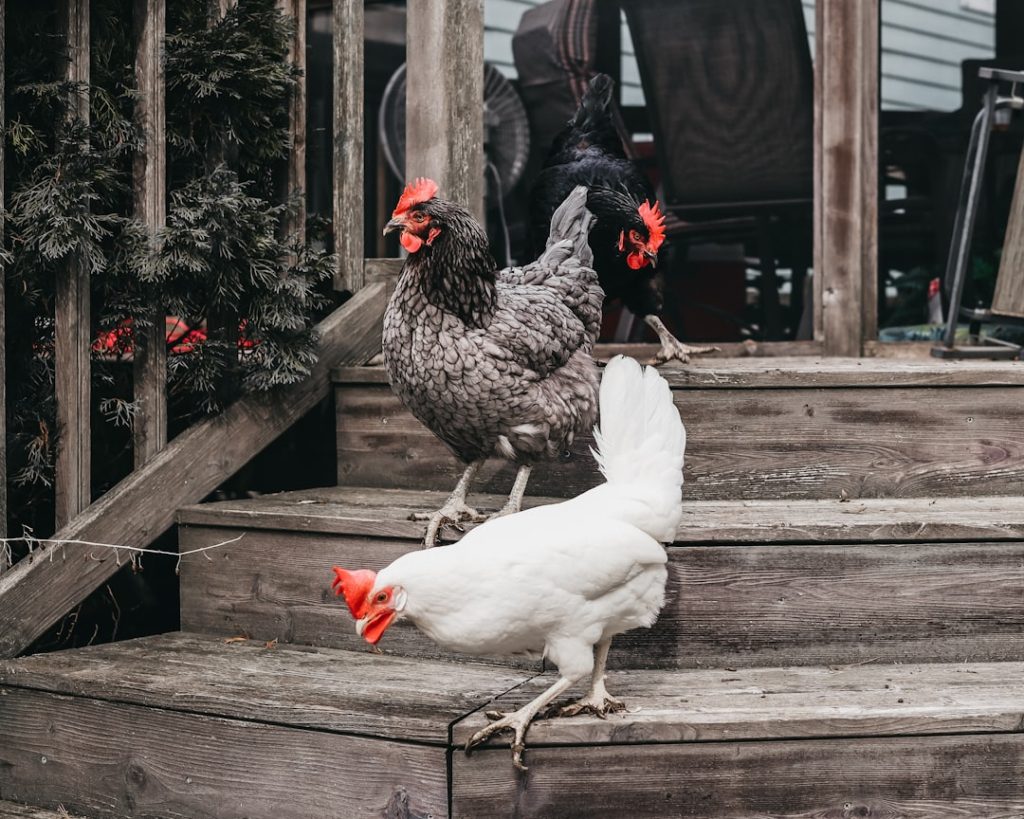Chickens exhibit complex social behaviors and form hierarchies within their flocks. These birds are naturally inquisitive and demonstrate cognitive abilities through their constant foraging and environmental exploration. Comprehending these innate behaviors is essential for creating an optimal living environment for chickens.
Providing adequate space allows for the establishment of their social structure without causing stress due to overcrowding. Offering opportunities for foraging and exploration, such as spacious outdoor areas or enrichment toys, helps satisfy their natural instincts and promotes mental stimulation. Chickens are diurnal animals, meaning they are primarily active during daylight hours and rest at night.
This circadian rhythm should be considered when designing their roosting area and establishing feeding routines. By aligning their living conditions with these natural behaviors, caretakers can create a more suitable and less stressful environment for chickens. This approach typically results in improved overall health and well-being for the birds.
Table of Contents
Key Takeaways
- Chickens are social animals and have a natural pecking order within their flock.
- Providing a comfortable and safe sleeping environment is essential for the well-being of chickens.
- Establishing a consistent feeding schedule helps maintain the health and productivity of chickens.
- Enrichment activities and distractions, such as pecking toys and perches, are important for the mental and physical stimulation of chickens.
- White noise or background music can help create a calming environment for chickens and reduce stress.
- Identifying and addressing potential stressors in the environment, such as predators or loud noises, is crucial for the welfare of chickens.
- Seeking professional advice from a veterinarian or animal behaviorist can be beneficial in ensuring the optimal care and well-being of chickens.
Creating a Comfortable Sleeping Environment for Chickens
Providing a Safe and Secure Roosting Space
Chickens prefer to roost off the ground, so providing elevated roosting bars or platforms in their coop will allow them to feel safe and secure while they sleep. This elevated space will give them a sense of comfort and protection, leading to better rest and overall well-being.
Ensuring Proper Ventilation and Temperature Regulation
Additionally, ensuring that the coop is well-ventilated and free from drafts will help regulate the temperature and keep the air fresh, promoting better sleep quality for your birds. A well-ventilated coop will prevent the buildup of ammonia and moisture, creating a healthy environment for your chickens to thrive.
Creating a Cozy Nesting Area
It’s also important to provide adequate nesting boxes for your hens to lay their eggs. These boxes should be secluded and lined with soft bedding material to create a cozy and inviting space for them to lay their eggs. By providing a comfortable and secure nesting area, you can encourage your hens to lay eggs regularly and reduce stress.
Implementing a Consistent Feeding Schedule

Implementing a consistent feeding schedule is crucial for maintaining the health and well-being of your chickens. Chickens thrive on routine, so providing them with regular meals at the same time each day can help reduce stress and promote a sense of security within the flock. Additionally, ensuring that they have access to fresh water at all times is essential for their overall health and hydration.
When it comes to their diet, it’s important to provide a balanced and nutritious feed that meets their specific nutritional needs. This may include a combination of commercial chicken feed, grains, fruits, and vegetables. By providing a varied and balanced diet, you can ensure that your chickens receive all the essential nutrients they need to stay healthy and productive.
Implementing a consistent feeding schedule and providing a balanced diet will help keep your chickens happy and healthy, ultimately leading to better egg production and overall well-being.
Providing Enrichment and Distractions
Providing enrichment and distractions for your chickens is essential for keeping them mentally stimulated and preventing boredom. Chickens are naturally curious animals that enjoy exploring their surroundings and engaging in various activities. Providing enriching toys, such as hanging treats or puzzle feeders, can help keep them entertained and mentally engaged.
Additionally, allowing them access to a spacious outdoor area where they can forage and dust bathe will provide them with opportunities for natural behaviors and mental stimulation. Furthermore, introducing new objects or rearranging their environment from time to time can help prevent habituation and keep things interesting for your chickens. By providing enrichment and distractions, you can help prevent boredom and reduce stress within the flock, ultimately leading to happier and healthier birds.
Using White Noise or Background Music
Using white noise or background music can have a calming effect on chickens and help reduce stress in the coop. Soft background music or white noise can help mask sudden loud noises or disturbances, creating a more peaceful and relaxing environment for your birds. Additionally, some studies have suggested that certain types of music can have a positive impact on chicken behavior, potentially reducing stress levels and promoting overall well-being.
It’s important to note that not all types of music may have the same effect on chickens, so it’s essential to observe their behavior and reactions to different sounds. By using white noise or background music in the coop, you can help create a more soothing and stress-free environment for your chickens, ultimately leading to happier and healthier birds.
Addressing Potential Stressors in the Environment

Common Stressors in the Environment
Common stressors may include overcrowding, predator threats, extreme temperatures, or sudden changes in their surroundings. By recognizing these potential stressors, you can take proactive measures to minimize their impact on the flock.
Creating a Safe and Comfortable Space
For example, ensuring that the coop is predator-proof and providing adequate space for the flock can help reduce feelings of vulnerability and stress. Additionally, implementing measures to regulate the temperature within the coop, such as proper ventilation or insulation, can help prevent heat stress or cold stress in extreme weather conditions.
Promoting Better Health and Well-being
By addressing potential stressors in the environment, you can create a safer and more comfortable space for your chickens, ultimately promoting better health and well-being.
Seeking Professional Advice if Necessary
If you notice any concerning changes in your chickens’ behavior or health, it’s important to seek professional advice from a veterinarian or experienced poultry expert. Sudden changes in behavior, decreased egg production, or signs of illness should not be ignored and may require professional attention. A qualified professional can help diagnose any underlying health issues or provide guidance on how to improve the overall well-being of your flock.
Additionally, seeking professional advice can be beneficial when implementing new management practices or making significant changes to the flock’s environment. A knowledgeable expert can provide valuable insights and recommendations tailored to your specific situation, ultimately helping you make informed decisions that promote the health and happiness of your chickens. In conclusion, understanding the natural behavior of chickens is essential for creating a comfortable and enriching environment that promotes their overall well-being.
By recognizing their social nature, diurnal habits, and natural instincts, you can design a coop that meets their specific needs and reduces stress within the flock. Implementing a consistent feeding schedule, providing enrichment and distractions, using white noise or background music, addressing potential stressors in the environment, and seeking professional advice when necessary are all important factors in maintaining the health and happiness of your chickens. By prioritizing their well-being and taking proactive measures to create a harmonious environment, you can ensure that your chickens lead happy, healthy, and fulfilling lives.
If you’re looking for tips on how to keep chickens quiet in the morning, you might also be interested in learning about the best floor options for your chicken coop. Check out this article for helpful advice on creating a comfortable and easy-to-clean space for your feathered friends.
FAQs
What are some reasons why chickens are noisy in the morning?
Chickens are naturally noisy in the morning because they are signaling to the rest of the flock that it’s time to wake up and start their day. They may also be vocalizing due to hunger, excitement, or to communicate with other chickens.
How can I keep my chickens quiet in the morning?
To keep chickens quiet in the morning, you can ensure that they have access to food and water before they wake up. You can also provide them with enrichment activities to keep them occupied and reduce their vocalizations. Additionally, keeping their coop dark in the early morning can help discourage them from becoming noisy.
Are there any specific breeds of chickens that are quieter in the morning?
Some chicken breeds are known to be quieter than others, such as Silkies, Orpingtons, and Sussex. These breeds tend to be less vocal overall, which may translate to quieter mornings.
Can I train my chickens to be quieter in the morning?
While you can’t completely eliminate a chicken’s natural instinct to vocalize in the morning, you can train them to be quieter through positive reinforcement. By rewarding them for quiet behavior and providing distractions, you may be able to reduce their morning noise levels.
Meet Walter, the feathered-friend fanatic of Florida! Nestled in the sunshine state, Walter struts through life with his feathered companions, clucking his way to happiness. With a coop that’s fancier than a five-star hotel, he’s the Don Juan of the chicken world. When he’s not teaching his hens to do the cha-cha, you’ll find him in a heated debate with his prized rooster, Sir Clucks-a-Lot. Walter’s poultry passion is no yolk; he’s the sunny-side-up guy you never knew you needed in your flock of friends!







